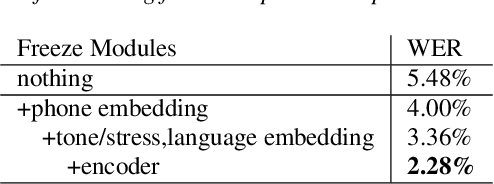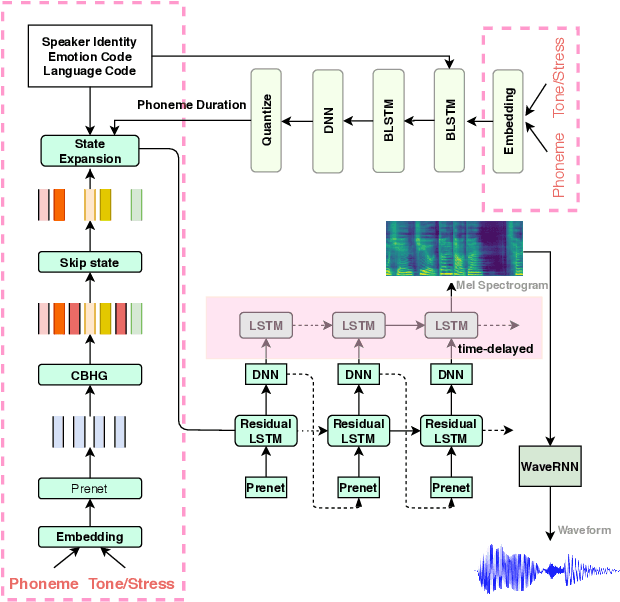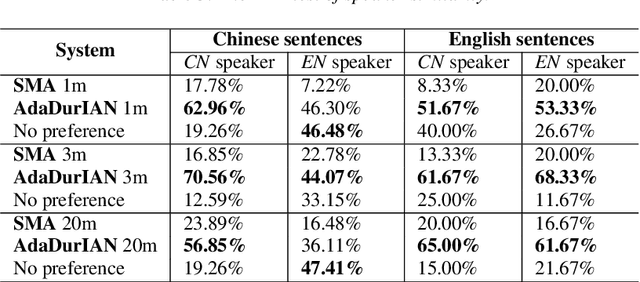AdaDurIAN: Few-shot Adaptation for Neural Text-to-Speech with DurIAN
Paper and Code
May 12, 2020



This paper investigates how to leverage a DurIAN-based average model to enable a new speaker to have both accurate pronunciation and fluent cross-lingual speaking with very limited monolingual data. A weakness of the recently proposed end-to-end text-to-speech (TTS) systems is that robust alignment is hard to achieve, which hinders it to scale well with very limited data. To cope with this issue, we introduce AdaDurIAN by training an improved DurIAN-based average model and leverage it to few-shot learning with the shared speaker-independent content encoder across different speakers. Several few-shot learning tasks in our experiments show AdaDurIAN can outperform the baseline end-to-end system by a large margin. Subjective evaluations also show that AdaDurIAN yields higher mean opinion score (MOS) of naturalness and more preferences of speaker similarity. In addition, we also apply AdaDurIAN to emotion transfer tasks and demonstrate its promising performance.
 Add to Chrome
Add to Chrome Add to Firefox
Add to Firefox Add to Edge
Add to Edge